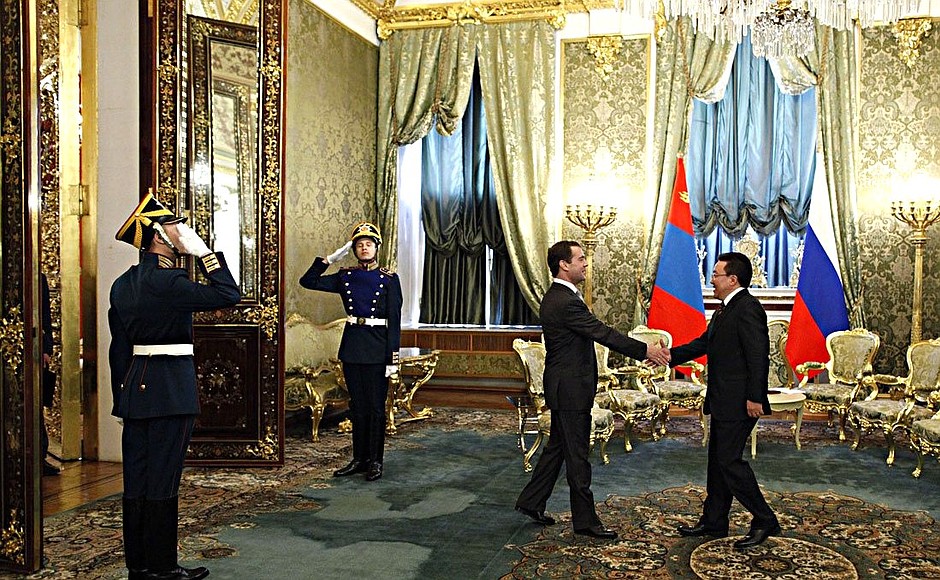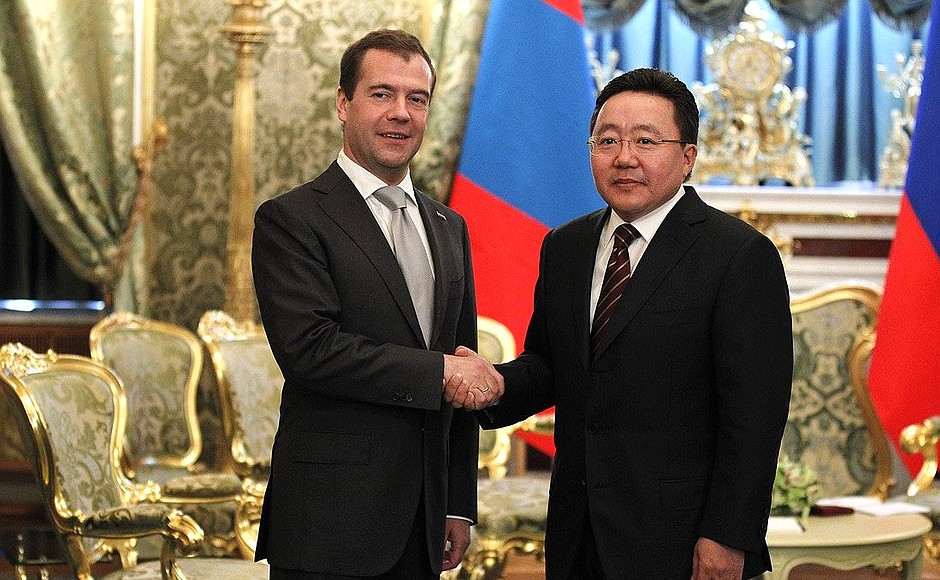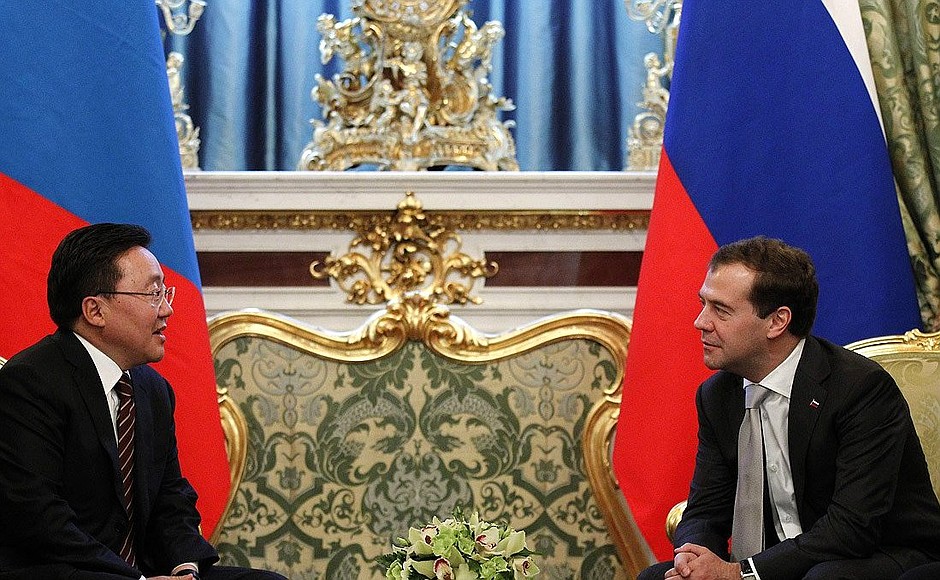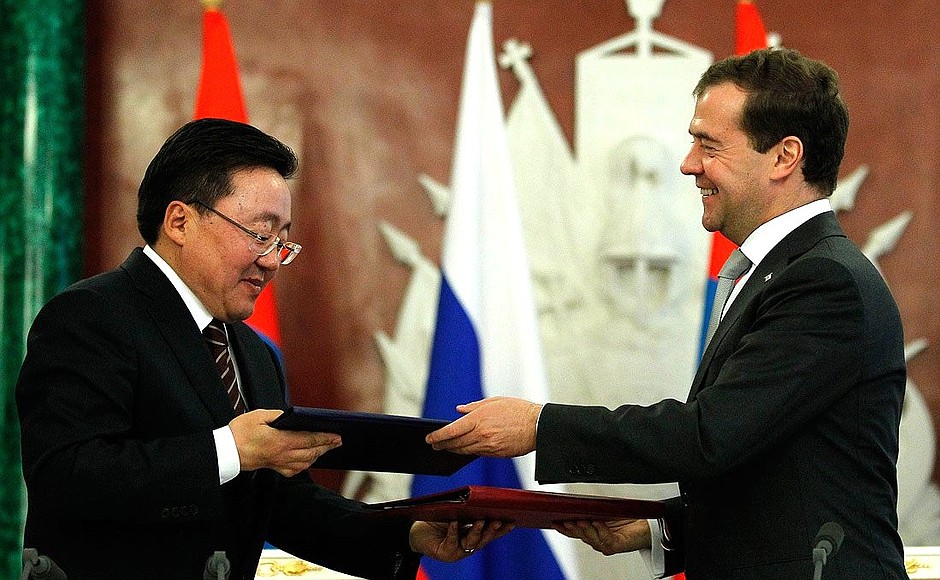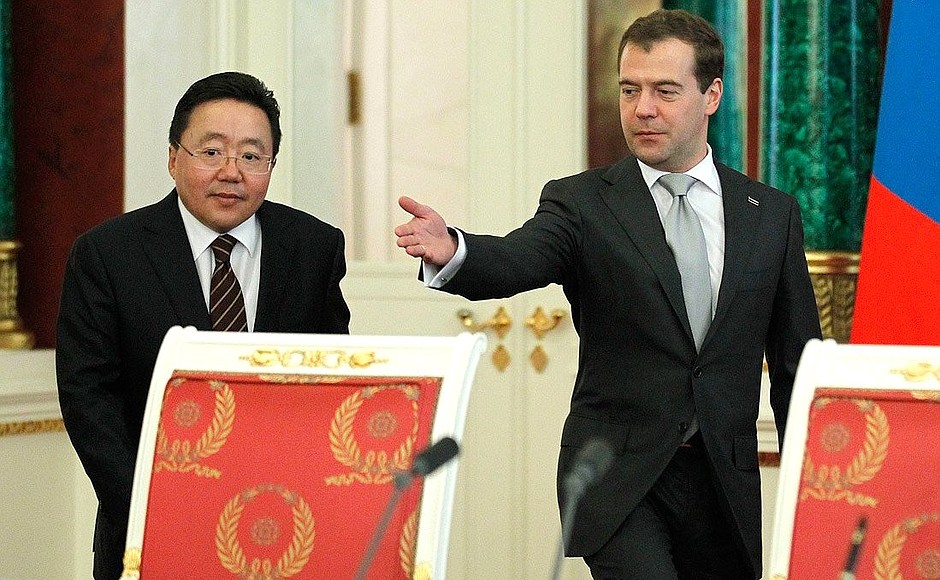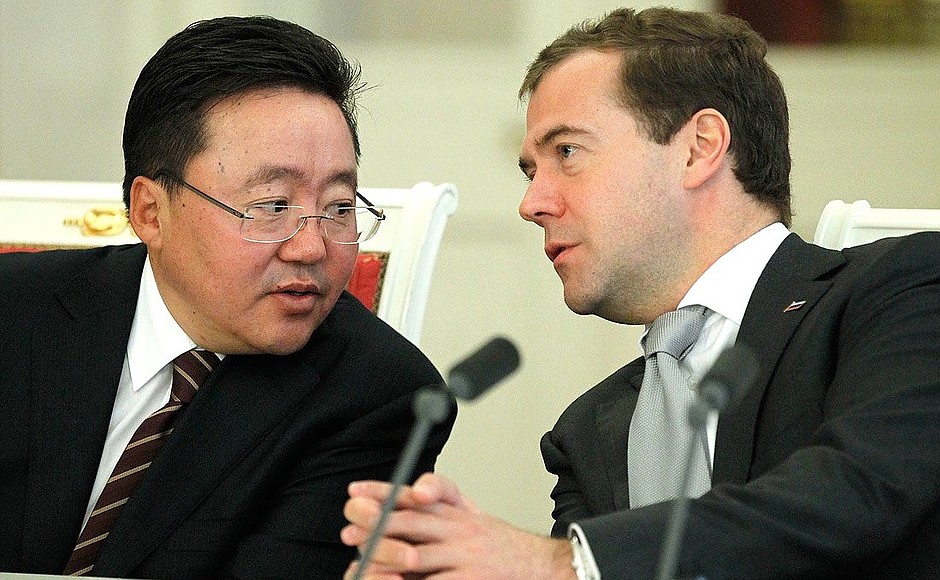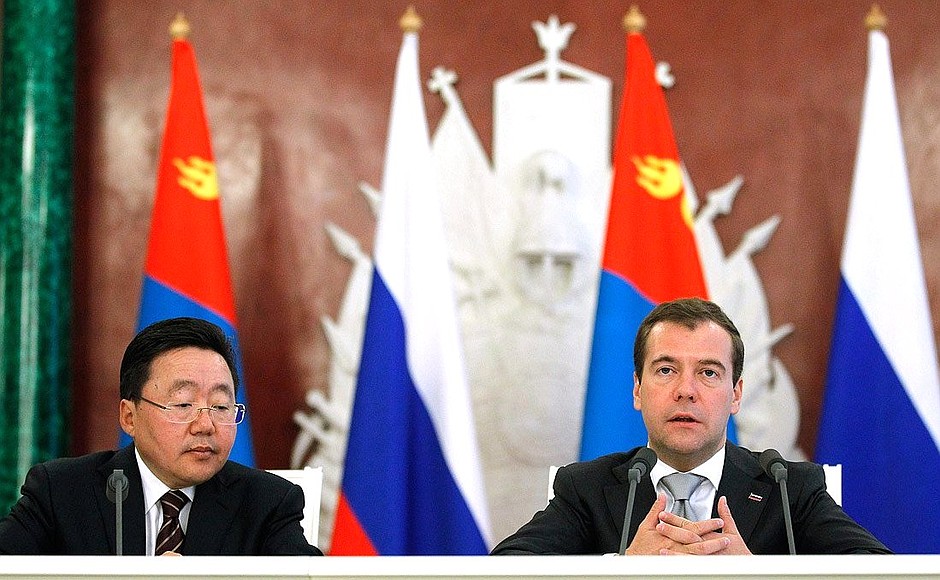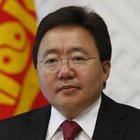Following the talks, Dmitry Medvedev and Tsakhiagiin Elbegdorj issued a joint declaration. A number of further documents were signed in the presence of the two presidents: a memorandum on research cooperation between the two countries’ Academies of Medical Sciences, an intergovernmental agreement on the establishment of a transborder biosphere reserve Uvs Nuur Basin, an intergovernmental agreement on mutual protection of intellectual property within the framework of bilateral defence cooperation, and a protocol on amendments to the bilateral agreement of June 6, 1949 on the establishment of the Soviet-Mongolian company Ulaanbaatar Railway.
Russia and Mongolia are actively cooperating in the energy sector, implementing joint projects on the development of mineral deposits, as well as in transport, infrastructure and agriculture.
The official visit of Tsakhiagiin Elbegdorj is taking place during a momentous year for Mongolia and Russian-Mongolian ties: 100th anniversary of Mongolia’s independence and the 90th anniversary of bilateral diplomatic relations.
In addition, the two countries mark the 30th anniversary of a joint space mission, which took place in March 1981 as part of the Intercosmos space programme: Mongolia’s first cosmonaut researcher Zhugderdemidiyn Gurragcha flew into orbit as member of the Salyut-39 crew.
***
Press statements following Russian-Mongolian talks
President of Russia Dmitry Medvedev: Good afternoon, colleagues,
First of all, I would like to once again welcome President of Mongolia Tsakhiagiin Elbegdorj and the whole of the Mongolian delegation to Moscow and to note that our countries have been linked by a very close friendship for many decades. This friendship has been fully evident in the course of today's talks.
Mr President and I have already discussed the most dominant, most crucial and probably the most complex issues of our cooperation, and after the news conference we will continue our discussion in an expanded format with the participation of our ministers and other colleagues. We have exchanged information on trade and economic ties, talked about what remains to be done and expressed our mutual commitment to strengthening the relations between our states with each passing year, making them more productive and beneficial for the peoples of the Russian Federation and Mongolia.
I would like to note that President Elbegdorj’s visit is taking place during a very special year. This year is rich in historical dates, and we have commented on that today. It is the 100th anniversary of Mongolia’s independence, the 90th anniversary of establishing diplomatic relations between our states and half a century since Mongolia’s admission to the United Nations. There is still another anniversary: this year we are celebrating the anniversary of Yury Gagarin’s space flight, and 30 years ago, in 1981, the first Mongolian cosmonaut flew into space. So in that sense, the year is very rich in all sorts of good reasons to think back to past achievements and contemplate the future.
”Our economic cooperation is developing dynamically and we are jointly implementing a number of major projects in Mongolia and elsewhere in the transport sector, infrastructure development and agriculture.“
Our economic cooperation is developing dynamically and we are jointly implementing a number of major projects in Mongolia and elsewhere in the transport sector, infrastructure development and agriculture. Because of this, our turnover has significantly increased in recent years. Last year trade between our countries stood at over $1 billion, which is up 40% from the difficult year 2009. This year the trend is very good: it appears that the turnover for the first quarter has increased by another 50%. There is still a great deal for our Mongolian partners and us to tackle because the trade balance, the net balance is not in favour of our Mongolian colleagues, but this matter requires significant attention and discussion this year.
It is also important to pay attention to the cooperation between the regions. Our interregional relations, our cross-border ties contribute up to 70% to bilateral trade and result in fairly active travels by our citizens. Incidentally, I am very pleased that in addition to Moscow, Mr President will also visit St Petersburg, our second capital, and Elista, a region that has many close ties with Mongolia.
Humanitarian issues occupy a special place in our relations. Our two countries’ intellectuals, culture professionals and experts have many years of fruitful cooperation experience. Mr President has raised this issue during our talks, referring to the study of various historical monuments and archives that have a direct bearing on the history of Mongolia and to our shared history. This is an opportunity to enhance ties among universities. Russia has many Mongolian students, and we are very pleased about that and ready to develop this cooperation in the future.
Naturally, we are interested in Mongolians’ continued desire to learn the Russian language because historically it has so happened that a large number of Mongolians speak Russian. It is our joint heritage because it facilitates communication and helps address a variety of economic issues our countries are facing. I am sure, Mr President, that your meeting yesterday with the faculty of Lomonosov Moscow State University has confirmed interest in your country and the study of the Russian and Mongolian languages.
We will also discuss some inter-regional issues and aspects of international cooperation relevant to our countries.
I would like to thank my colleague and partner Tsakhiagiin Elbegdorj for productive talks and to wish you success.
President of Mongolia Tsakhiagiin Elbegdorj: (retranslated) Mr President,
Ladies and gentlemen,
I would like to thank the Russian party once again for the hospitality and warm welcome in the friendly Russian Federation. Russian President Dmitry Medvedev paid a state visit to Mongolia in 2009, and at that time we signed the Declaration on Developing a Strategic Partnership. We believe that it was a historical visit, which served to intensify relations between Mongolia and the Russian Federation in all spheres of our interaction, some of which Mr President mentioned in his address.
My visit is taking place in a special year, a year that is rich in momentous historical dates, so I think that my visit is also important as it will help us find solutions to many significant issues of our bilateral cooperation. We have discussed infrastructure and trade and agreed to continue our joint efforts to find the most acceptable mutually beneficial solutions.
Nearly 100% of Mongolia’s domestic demand for petroleum products is satisfied by Russia, but due to certain difficulties experienced by our Russian partner we are not receiving the full amount of petroleum products, including diesel fuel, which has led to disruptions in the sowing campaign, as well as in industry generally and public transport. Mr President drew special attention to this issue and promised to assist us in resolving it, for which we are grateful.
An important inter-governmental agreement on defence cooperation has been signed. Defence cooperation is a traditional sector of our cooperation and we intend to continue it.
We have also discussed instigating joint research of the cultural and historical heritage stored in museums and archives of the Russian Federation.
We are grateful to Russia for its intention to increase the quota for Mongolian students to study at Russian universities. This is very important for our country because young people who will receive their education at Russian schools will in future play an important role in the development of bilateral cooperation.
We also talked about other subjects, but we still have an expanded meeting planned where we will discuss other relevant matters, including regional and international issues.
We would like to express our deep appreciation to President Medvedev and other Russian delegation members for the very friendly and warm atmosphere of our visit, and on behalf of the Mongolian people, state and Government I want to express our deep appreciation to the Russia people, whom you represent.
